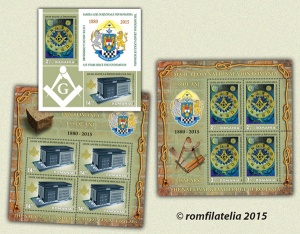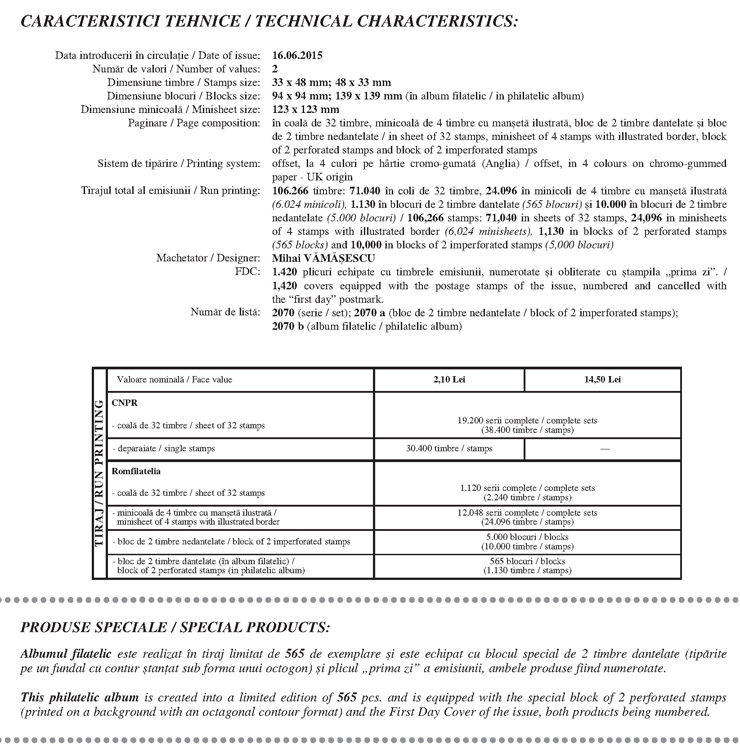 Freemasonry is a fraternal society the origins of which go back in time to the very cradle of humanity. Its efforts, directed toward perfecting the human being, are underpinned by the belief that love makes one a better, more enlightened, more just and more tolerant person, and a more useful member of society.
Freemasonry is a fraternal society the origins of which go back in time to the very cradle of humanity. Its efforts, directed toward perfecting the human being, are underpinned by the belief that love makes one a better, more enlightened, more just and more tolerant person, and a more useful member of society.
Its structure and essence are moral and philosophical. Setting itself the goal of furthering the dialogue between human beings, it builds bridges that draw us nearer, mitigating that which separates us.
The Freemasonry has brought its contribution to the progress of mankind by being a promoter of peace and understanding and by advocating for a world where human dignity is respected.
To be a Freemason, one must strongly believe in Divinity generically entitled Grand Architect of the Universe in His revealed will and in the immortality of the soul, to love ones family, ones motherland and the Masonic Order as one loves himself.
Modern Freemasonry is not a secret society as its noble aims are known to the public.
The three great principles that constitute the foundation for the activity of the Masonic Order are brotherly love, mutual aid and the search for the truth.
Know thyself, love your fellow being, aid him, all the while respecting his dignity. This is the golden rule of Freemasonry.
The first information documenting the emergence of Freemasonry in the Romanian territory appeared during the fourth decade of the 18th century, when several archive sources reported the existence of a few masonic Lodges in the Romanian Principalities.
By the middle of the 19th century, more Lodges, placed at the time under various obediences (e.g. Italian, French, etc), are founded within the Romanian territory. Within these Lodges were working free men of good repute, persons of consequence from all fields, members of the elites of the time. They were advocates of Enlightenment and of the triumph of reason, militating for Liberty, Equality and Fraternity within the society as well as for the national ideals of Unity and Independence for all Romanians.
Due to the defeat of the 1848 Revolution, a majority of Romanian Freemasons were forced into exile, where they continued their work in pursuit of their own ideals and of those of their motherland. They were joined by a number of the Romanian youth studying in various Western capitals, some of them already initiated in a number of lodges. These men may be counted, without a doubt, among the fathers of the Romanian national state. Upon returning to their country, within the context of the situation generated by the outbreak of the Crimean War and the subsequent Peace Congress, these Freemasons were organized into new Lodges and, joined by those that had continued their Masonic Work within the frontiers of the Romanian Principalities, were instrumental in accomplishing, in 1859, the Unification of the Romanian Principalities of Wallachia and Moldavia.
In the wake of achieving the modern Romanian national state, the activity of Freemasons was directed toward consolidating this advance by driving reform in most areas of social and cultural life. The next major objective for the Freemasons was obtaining state independence and making Romania a direct subject of international public law. This became reality as a consequence of the Independence War of 1877-1878 and of the ensuing Peace Congress. Under the new historical climate ensured by gaining national sovereignty, Romanian Freemasonry registered a new decisive step in its history. On the 8th / 20th of September, 1880, the National Grand Lodge of Romania was founded, with Captain Constantin Moroiu as Grand Master. From that moment onward, Romanian Freemasons members of the National Grand Lodge of Romania have constantly been concerned with the nations moral and material progress, devotedly working to fulfil Romanias legitimate aspirations within the international concert.
During the Interwar period, Romanian Freemasons continued their activity in the service of their country and of Romanian society, providing practical confirmation of their direct involvement in achieving a unified Romania and placing our country in a dignified position within the context of the civilization of the time.
In the difficult circumstances surrounding the Second World War, the National Grand Lodge of Romania ceased its activity. It resumed it, albeit for a short period of time, in the new historical conditions following the end of the War. The new political rule established in Romania made it impossible, from 1948 onward, for the Freemasonry to continue its activity within Romania, as the country became confronted with a harsh totalitarian regime. During this time, Romanian masonic activity was only possible from the diaspora, in countries such as France, Israel, Germany and Argentina.
Numerous notable international figures have been honorary members of the National Grand Lodge of Romania over the years; among them, Their Majesties King Oscar II of Sweden, Edward VII of Great Britain and William I of Hohenzollern, King of Prussia and Emperor of Germany. Other illustrious figures, both Romanian and foreigners, originating from the political, scientific, cultural and military worlds, have also donned with honor the masonic apron.
Following the watershed of December 1989 and Romanias subsequent return to a democratic regime, the life of Freemasonry in our country has entered a new and beneficial stage. Against the generous auspices provided by Romanias democratic renaissance, the Convent for Reconstituting and Reawakening of the National Grand Lodge of Romania took place on January 24th, 1993 a momentous event in the life of Romanian masonry. It was followed by a fruitful period of robust growth of the National Grand Lodge of Romania, which today comprises over 420 Lodges with almost 14,000 active members.
The National Grand Lodge of Romania is currently undertaking the project of building a social and cultural edifice that will serve as a representative landmark for our society. The new complex will comprise meeting rooms, a library, a museum and various functional spaces necessary for conducting regular activities. Completing the construction of this great socio-cultural complex will amount to laying the foundation of a better future for Romanian spirituality, as set out in the work initiated by Grand Master Radu Balanescu through the program Romanian Masonry for Romania.
Through the graphics of the 2 postage stamps a metaphorical bridge is created between the origins, the past and present thusly:
– Elements of symbolism the moon, the sun and the 12 zodiacal signs, in a picturesque composition from the N.G.L.R. patrimony, whose elements try and portray the symbols of the material and spiritual universe. The letter G is a reference to the Great Architect, God;
– The project of the construction of the Great Temple of the National Great Masonic Lodge of Romania.
With the occasion of the celebration, this year, of 135 years since the founding of the National Grand Lodge of Romania, Romfilatelia creates the present stamp issue, which brings to the attention of passionate stamp collectors novel aspects of the existence and activity of this fraternal society.
Issue date: 2015-06-16









